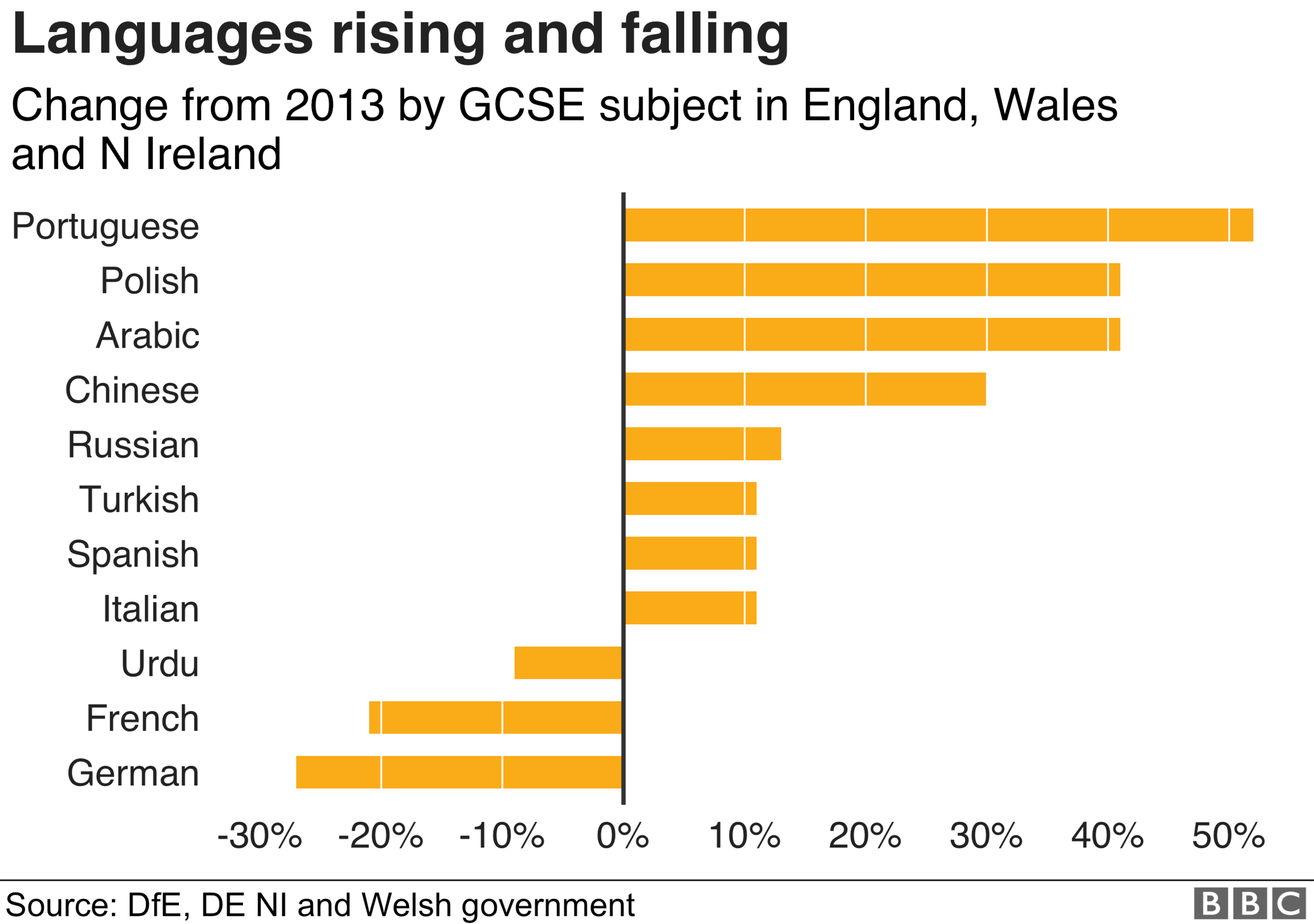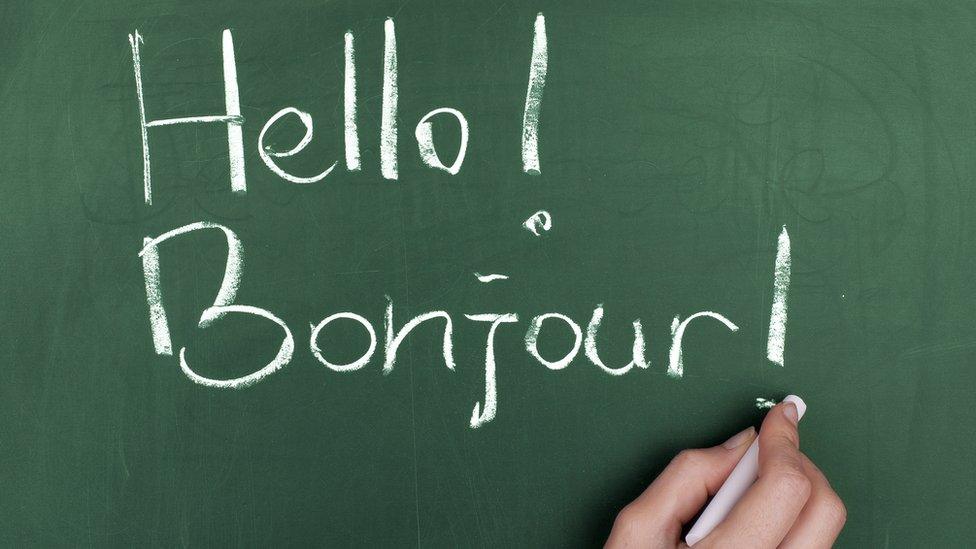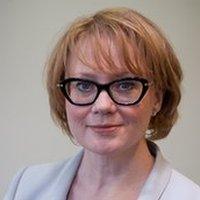French and German GCSE in 2020 to get 'easier grading'
- Published
- comments

French and German GCSE exams will be marked less severely from 2020 in England, after a review of grading.
It could mean a boost of between a quarter and a half of a grade for some pupils.
The exams regulator, Ofqual, said the change would bring grading of these two languages into line with GCSE Spanish.
The head-teachers union ASCL said it was delighted but more would be needed to reverse the decline in language learning.
'Strong case'
The grading alterations follow intense pressure from teachers of modern foreign languages, who said it was harder to achieve a top grade in their subjects.
Pupils aiming for a middle to top grade stand to benefit most from the changes, with adjustments being made to what is required to reach grades 7 to 9.
While there will be a moderate impact for grade 4, there will be no change to the minimum needed to achieve a grade 1.
Dr Michelle Meadows, from Ofqual, said it was satisfied there was " a sufficiently strong case for us to intervene to adjust grading standards in GCSE French and German".
Consistent standards
No changes are planned for GCSE Spanish, which was also part of the review.
The regulator is responsible for maintaining consistent standards in GCSEs across different subjects and over time.
A statistical analysis it carried out showed in 2016 French and German were among the five hardest of the 30 main GCSE subjects.
German was found to be two-fifths of a grade harder than the average across all subjects.
'Reasonable expectation'
One of the other factors taken into account by Ofqual was whether the perception French and German were graded severely had contributed to the decline in pupils studying for the exams.
Earlier this year, a cross-party group of MPs and peers warned of a crisis in language learning and said the UK was complacent about its language skills.
Their report called for changes in grading and said pupils should have a "reasonable expectation" their GCSE grade in a foreign language would be comparable to their grades in other subjects.
Foreign-language learning is at its lowest level in UK secondary schools since the turn of the millennium, with German and French falling the most.
'Severe shortage'
A BBC News analysis of exam entries showed a drop of between 30% and 50% since 2013 in the numbers taking GCSE language courses in the worst affected areas in England.
The number of entries for Spanish has continued to rise.

The government has pointed to a growing proportion of pupils studying a modern language, rising from 40% in 2010 to 47% in 2019, driven largely by the increased popularity of Spanish.
But the Association of School and College Leaders general secretary Geoff Barton described the fall in French and German as "catastrophic".
He welcomed the shift in grading but said it was only one part of the solution.
"There is a severe shortage of modern-foreign-language teachers and this may become more challenging in the context of Brexit because schools rely heavily on being able to recruit staff from EU countries."
Ofqual had already decided not to adjust grades in modern-foreign-language A-levels.
The ASCL said it would press for that decision to be revisited as there was a "compelling case" languages were also in decline at A-level.
A review of the content of GCSE modern foreign languages has also just been announced by the government.
It will look at making the subjects more engaging and appealing for teenagers, without lowering standards.
The School Standards Minister Nick Gibb said: "Our reformed GCSEs are the gold standard, but we have listened to what teachers, parents and Ofqual have told us about GCSEs in modern foreign languages. "
The independent review will include French, Spanish and German.
- Published19 January 2019

- Published18 August 2016

